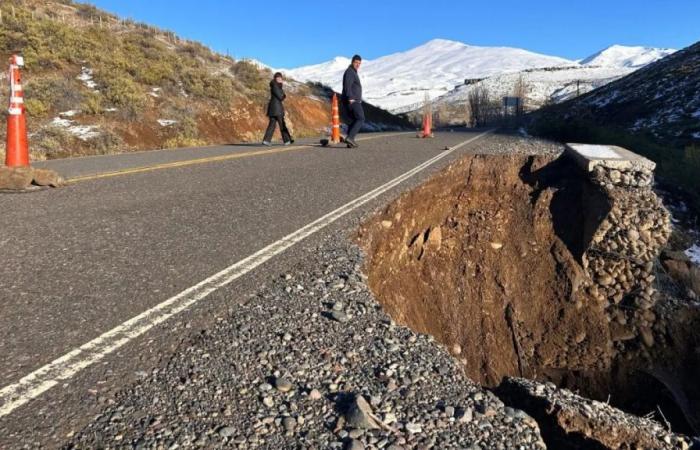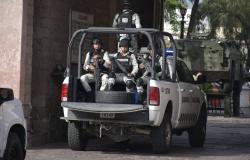One of the snapshots that circulated the networks showed an operator from the Provincial Energy Entity (EPEN) on top of a pole, while trying to restore electricity service to residents of Coyuco-Cochico. At the foot of the post you can see the horses with which he and the companion who took the photo arrived, because traveling by truck was simply impossible. Not only was the work of EPEN fundamental in the icy geography of the northern mountain range. It was also the case of the Police officers and the workers of the provincial Highway Department, who ordered and cleared routes, while assisting the motorists (several of them, understandably scared).
The territorial presence of the State was decisive. The Minister of Human Development, Local Governments and Women, Julieta Corroza, led and coordinated actions. Among others, with the regional delegate, Gustavo Coatz and with the Secretary of Culture, Inclusion and Community Management, Miriam Abojer, who ensured that the dry firewood reached where it needed to go, although transporting it was complicated. All with the permanent support of the Emergency Operations Center, headed by the Secretary of Emergencies and Risk Management, Luciana Ortiz Luna.
The snowy landscapes of northern Neuquén had their impact on the emergencies that the storm generated among the population. In fact, there was an orange alert, interrupted circulation, lack of light and walls and ceilings that unfortunately leaked. The accumulated snow was more than important and, consequently, its weight as well. The mayors and community leaders, who know perfectly the localities they govern, guided the teams even to the homes furthest from urban concentrations, while the EPEN repaired lines in irrefutable proof of what Governor Rolando Figueroa usually repeats. : Only state companies reach those places where private companies hardly have the intention of doing so, for the simple reason that they are not economically profitable.
The EPEN is a company of the Neuquén State and reaching those places is its obligation. And, as could be seen, their workers go beyond that and continue forward, even if they have to make their way on horseback and descend from them with snow up to their knees. The same goes for the Roads teams, more than accustomed to these great challenges of an increasingly unpredictable, increasingly changing climate.
In the Los Miches region and surrounding areas, the storm knocked down more than 50 light poles, while in Huinganco they had to use tracked machinery to reach the facilities and repair the drinking water system. The North is one, the locals like to say, especially those who have gray hair. And in adversity they demonstrated it: the work was joint, side by side, back to back (and with frozen faces). Snow is part of the provincial identity, it is very Neuquén and it is valued, but it also generates these things. And you have to be prepared.
The Butalón area was literally isolated and the crews had to make extreme efforts to clear the road, while the snow did not stop falling to cover it again. At that same moment, there were those who were rescuing animals and others who were anxiously awaiting the arrival (from Zapala) of the generating set for which they were imploring to return energy to Los Guañacos.
Intense work due to the snow storm in the midst of anguish
The panorama was stressful for residents and workers. But trust and commitment meant there was no hysteria or chaos, even when it came time to transport patients to safety. The warmth also combated the cold.
In Las Ovejas they assisted the elderly and contributed both with the waterproofing of homes and with the provision of dry firewood. In Varvarco they used a tractor to open roads and in those more complex places snowmobiles and caterpillars were used. Precisely, from Varvarco, Minister Corroza expressed: “The idea is to be next to the people, both the teams that are working, the EPEN, Roads, the Police and the Emergency Secretariat, as well as the mayors and mayors.” She highlighted that assistance focuses on “assisting so that we can reach every Neuquén man and woman”; and she recalled that, “from the first moment we took office, the governor’s request was closeness to the people, a State present in the territory,” especially in the face of circumstances like these.
In Manzano Amargo, the snow surprised entire families who needed assistance with food – since their homes were isolated – and the crews arrived there. Of course there were evacuees, but there was also direct contact with the neighbors, and it was precisely that that helped them stay calm and prepare for what comes next, because although the storm passed, it is highly likely that the snowfall will continue. For now, all State agencies were installed there, where they are needed.






